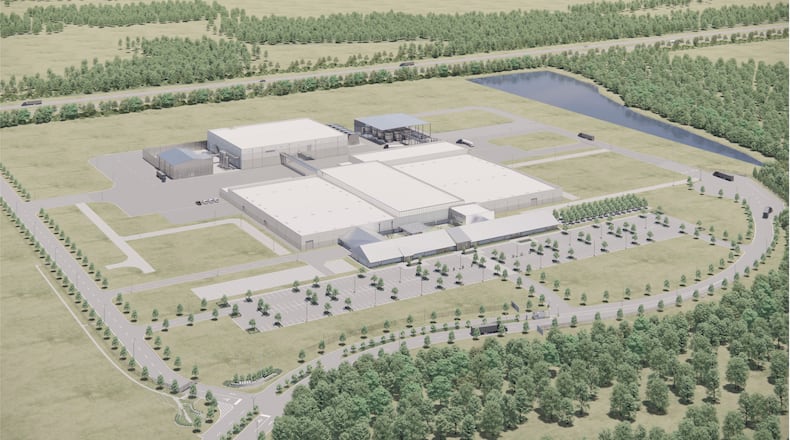A company that produces special materials to contain fires in electric vehicles has ceased construction of its partially built Georgia factory, jeopardizing a project that promised to employ 250 workers.
Executives at Massachusetts-based Aspen Aerogels said Thursday during an investor call that the company is indefinitely halting construction on its 500,000-square-foot factory near Register, which is about 12 miles outside of Statesboro.
The factory had already broken ground and received approval for a $671 million federal loan to assist with construction last fall. The loan was part of a flurry of construction financing approved for clean tech projects in the waning months of the Biden administration.
Ricardo Rodriguez, Aspen Aerogels’ chief financial officer and treasurer, told investors that the company has decided to shift investment to its existing facility in Rhode Island, aiming to maximize its capacity. The long-term future of the Georgia factory site, which was slated to become the company’s second production facility, is now unclear.
“(Aspen Aerogels) will be assessing options to derive value from the assets in Statesboro, including relocating some equipment to upgrade and expand its existing plant (in Rhode Island),” the company said.
Rodriguez added the company has tried to “right-time” the construction of its Georgia factory in light of “a reset in EV demand expectations.” While EV sales have continued to increase in the U.S., it’s been at a slower rate than industry experts expected.
The Boston Business Journal was the first outlet to cover the halted construction announcement. Aspen Aerogels couldn’t immediately be reached for comment
It’s the second large planned Georgia factory to either pause or scuttle its plans in recent weeks, following Freyr Battery’s decision to abandon its $2.6 billion factory in Coweta County. Both projects fell under the clean tech umbrella, an industry that Georgia leaders have heavily courted in recent years, especially across the battery and EV production supply chains.
Gov. Brian Kemp’s office and the Georgia Department of Economic Development, which announced the factory plans in 2022, told The Atlanta Journal-Constitution that Aspen Aerogels has not reached out to end its commitment to the state. The project, like many large industrial developments, was offered an incentive package in exchange for the company’s promise to build in Georgia and employ scores of workers.
A Georgia Department of Economic Development spokesperson said Aspen Aerogels was approved for a $1 million reimbursement grant for equipment and machinery tied to the project, but the company had not drawn any funds as of Thursday. The value of the total incentive package was not immediately available.
The Development Authority of Bulloch County, another government entity that helped recruit Aspen Aerogels, said it’s disappointed the project has stalled. Benjy Thompson, the authority’s CEO, said local taxpayers aren’t on the hook if the pause becomes permanent.
“Taxpayer protection is a priority,” Thompson said. “And should the project not move forward any further, clawback provisions are in place to recoup the local investment.”
The way incentives are structured in Georgia, partner companies only receive the bulk of their tax savings and other inducements upon delivering their development promises. The state’s agreement with Aspen Aerogels requires the company to deliver its investment and jobs by the end of 2027.
About the Author
Keep Reading
The Latest
Featured



